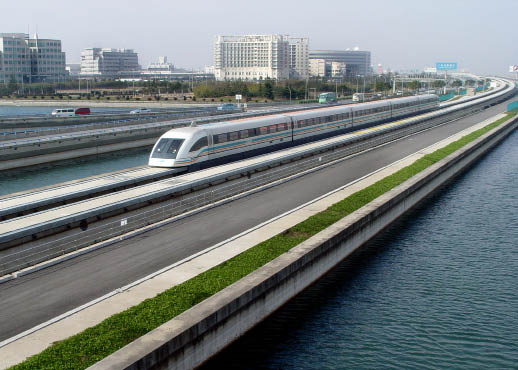|
Trailblazer
- Tracing the First Wholly Foreign-owned Company in China
By staff reporter ZHANG HUI
FOREIGN firms have been involved in the Chinese market for more than 30 years, starting from just a few processing factories manufacturing products for overseas companies in the late 1970s in Guangdong Province, to joint ventures projects and finally to wholly foreign-owned companies settled in China. From their first tentative dabbling in manufacturing to finally being rooted in the market, these firms have grown in tandem with the progress of China's reform and opening-up.
It was not until the first wholly foreign-owned company started operating in China that the Chinese people began to have a full picture of the management and business practices of international corporations and foreign firms got a chance to understand the Chinese market and its people firsthand. Grace China Ltd., a subsidiary of W. R. Grace & Co., a Maryland-based American chemical conglomerate, was the first wholly foreign-owned company in China, and settled here in 1986.
 |
| Concrete admixtures manufactured by Grace China were used in the construction of Shanghai Maglev railway. |
Growing with China's Development
For many Chinese people, Grace China is not a familiar name, as its products are mainly bought by industrial clients rather than ordinary consumers. But its products are still relevant to people's lives. As for the simple act of storing food and drink, one of Grace's products, packaging sealant, is important in producing cans.
"Grace actually started doing business with China in the 19th century. At that time, we had a shipping line, transferring goods from the North American continent to China. In the 1960s and 1970s, our new chairman, Peter Grace, took the helm. He considered China a big potential market. After China opened up again, he made several trips to China in the 1980s," Brian E. Kenny, president of Grace China Ltd., told China Today. During Peter Grace's China visits, he met with many of China's top officials, including Jiang Zemin, then mayor of Shanghai, who later became China's President.
In the early 1980s, canned drinks and food were still novel to Chinese consumers, but Peter Grace knew this would change. Now, his foresight has proven accurate, and they have become commonplace in most urban Chinese homes as the speed of city life has quickened.
In 1987, Grace China set up its first factory in Shanghai's Minhang Economic Development Zone to produce Darex can sealants. Before Grace China, every international corporation had entered China through joint ventures or an agency.
"In a sense, we came to China with our customers, because some of our global customers also moved here. We helped our customers adapt to China. We made chemical sealant for cans of soft drinks. Here they can buy the product they use everywhere else in the world," Kenny said.
The direction that Grace China's expansion subsequently took has very much been guided by the path that China's development as a whole has taken. In the late 1980s and early 1990s, hosts of large infrastructure construction projects, including highways, railways, nuclear power and hydropower plants, were undertaken following Deng Xiaoping's call to quicken the pace of China's reform and opening-up. Grace China saw another golden business opportunity to bring the major construction-related products of W. R. Grace & Co., which included cement additives, concrete admixtures, fireproofing and waterproofing materials, to the Chinese market.
"China's construction of infrastructures first sprouted in the coastal areas. That's why we first started in Shanghai, Tianjin and Guangzhou. Then, when the Chinese government announced its policy to develop the western regions, we began to see more and more construction in the hinterland, so we built a plant in Chongqing," Kenny said.
"Expansion of Grace China's business is highly representative of the growth of a batch of international corporations' subsidiaries in China," said Anderson Gui, general manager of Grace's Special Construction Chemical (SCC) China. "They expanded from the original agent office to a manufacturing base and then to a research and development center," he added.
These changes illustrate the growing importance of the Chinese market in the global operations of international corporations. W. R. Grace & Co. has invested a great deal in their Chinese branch and now has six manufacturing factories and four sales offices as well as a research and development center, and this investment is only set to increase.
"The huge potential of the Chinese market is an undoubted fact," Gui said. "When we review our performance in the past five years, we find the actual sales volume was always far greater than our expectations."
| 